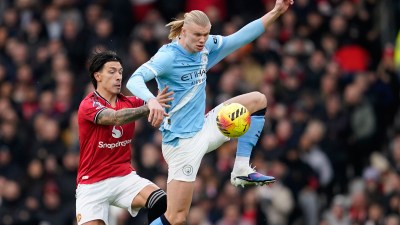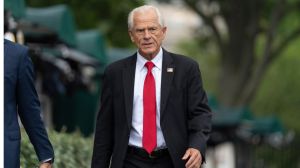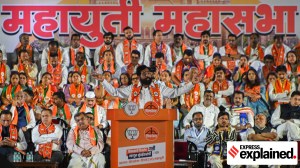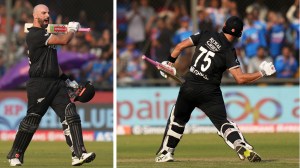Looking back
Looking back 8226; I am an 85-year-old man who is much pained by the uninformed mudslinging on Veer Savarkar. One of the 8216;accusations...

Looking back
8226; I am an 85-year-old man who is much pained by the uninformed mudslinging on Veer Savarkar. One of the 8216;accusations8217; against V.D. Savarkar is that he helped the British during the Second World War by asking the youth to join the armed forces. During the Quit India movement of 1942 I was a young man of 22 and like all the youth of that time passionately anti-British. A group of us carried out many sabotage activities against the British soldiers in Pune. We did not believe in peaceful means to attain freedom and felt that only violence will force the British to leave. In 1942 Savarkar appealed to the youth of Maharashtra to join the armed forces so as to learn the art of fighting a modern war and use it against the British when time came. I along with a group of six similarly inspired joined the Officer Training Centre in Pune in December 1943. I was selected and sent to Bangalore for further training. I was keen to join the army but unfortunately was offered only air force, so I came back to civil life. But many others of my group stayed back and served the nation in 1947 Kashmir war.
8212; A.G. Athale Pune
8226; Savarkar looked upon Hindu nationalism 8212; Hindutva 8212; not as a religious ideology but as a socio-political cohesive force. His concept of Bharat was inclusive of all who cared to be 8216;patriotic8217;, irrespective of their methods of worship. He never accepted divided loyalties. He opposed pan-national religious sentiment in conflict with loyalty to the nation-state. V. Venkatesan has torn history out of context for deliberate distortion 8216;The repackaging of Savarkar8217;, IE, Sept 24. Savarkar never feared for himself but cared a great deal for the cause he held sacrosanct, that is, freedom from the British Raj, modernisation and creating a powerful and free India.
8212; S.C.N. Jatar Pune
8226; Apropos of the piece, 8216;The Repackaging of Savarkar8217; IE, Sept 22, it set me thinking on the two lethargic traits that the 8216;liberal rabble8217;: trying to erase vile figures and events from public memory for 8216;healing8217;, and assuming that ideological triteness, even when packaged with hatred and popular prejudices, will not find followers. In spite of Venkatesan8217;s arguments, Savarkar deserves charity 8212; for intellectual banality 8212; but his opportunistic public relations brigades do not qualify for that either. A truly outstanding and incisive article.
8212; Robin Koshy On e-mail
Martyrs8217; column
8226; Apropos Manini Chatterjee8217;s article, 8216;Kala Pani story8217; IE, Sept 20, I appreciate her apt description of 8216;revolutionary terrorists8217; as those who leavened with their blood the mainstream freedom struggle.8217; I endorse her suggestion that the Cellular jail should have a memorial to all the martyrs in the cause of freedom, who were sentenced to transportation for life to the Andamans. At least the names of all those revolutionaries who spent at least 10 years there or who died while in incarceration should be engraved on a martyrs8217; column.
8212; Syed Shahabuddin Delhi
Better administration
8226; The Centre8217;s committee of secretaries COS has rightly decided 8212; as your editorial,8216;The flab busters8217; IE, Sept 21 8212; on as a slew of austerity measures. It sends out a message against sloth and drift and the assurance that the administration will be a leaner and meaner and will deliver the goods. A debate on the role of government in times when it is becoming less and less overwhelming in our lives is needed, as you correctly conclude.
8212; Vinod Chowdhury Delhi
- 01
- 02
- 03
- 04
- 05































